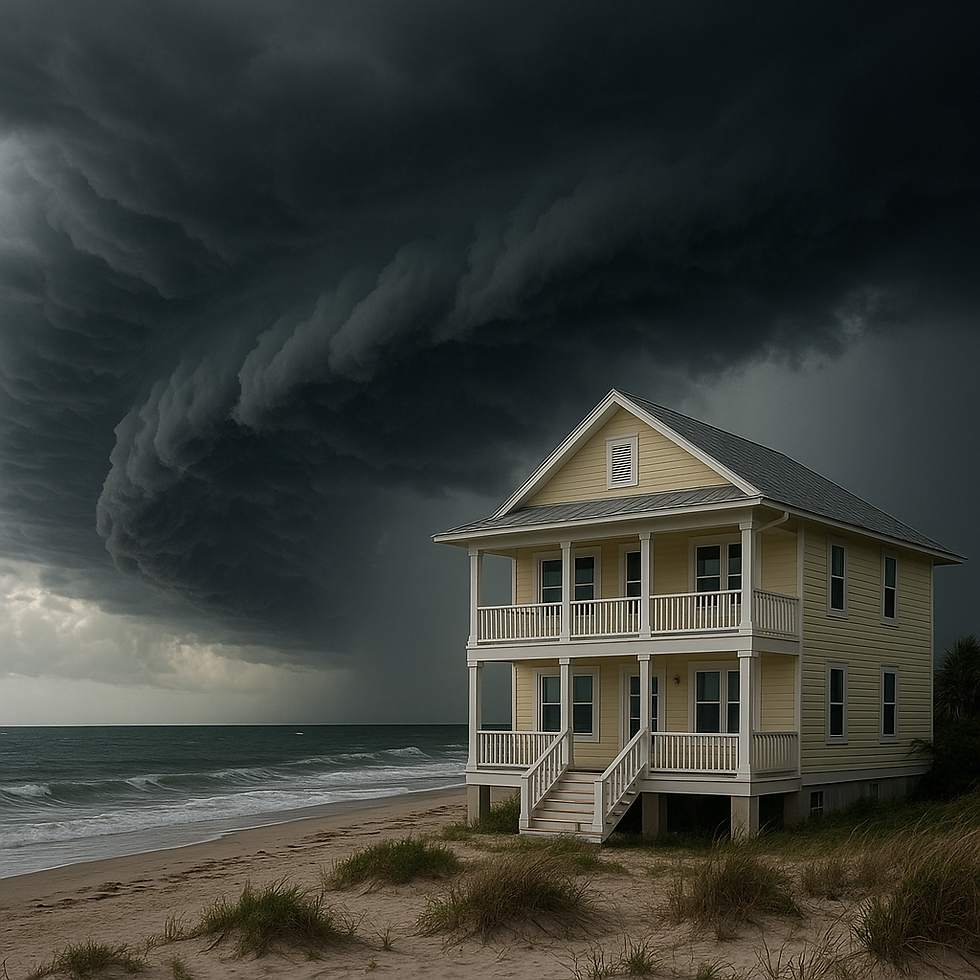Understanding Homeowners Insurance and Its Importance for Florida and Georgia Residents
- Christian Harris

- Oct 18, 2025
- 4 min read
Homeowners insurance is essential for anyone who owns a home. For those in Florida and Georgia, where hurricanes and floods are frequent, understanding this insurance is not just helpful; it is vital. Without the right coverage, homeowners are left vulnerable to severe financial setbacks. This blog post will explain homeowners insurance, highlight its significance for residents of Florida and Georgia, and explore how it can help protect both your property and your peace of mind.
What is Homeowners Insurance?
Homeowners insurance is a form of property insurance that offers financial protection against various risks related to housing. This coverage includes:
Dwelling Coverage: This safeguards the physical structure of your home from incidents like fire, wind damage, and vandalism. For example, the average cost to rebuild a home in Florida can be around $150 per square foot. If your home is 2,500 square feet, that equates to $375,000 in dwelling coverage.
Personal Property Coverage: This protects your belongings, such as furniture and electronics, against theft or damage. In Florida, data shows that an average family has personal belongings worth around $60,000.
Liability Protection: This coverage protects you against legal claims if someone is injured on your property. Statistics indicate that liability claims may cost homeowners an average of $30,000.
Additional Living Expenses (ALE): If your home becomes uninhabitable due to a covered event, this coverage helps pay for temporary housing and other living costs. ALE can cover expenses up to 20% of your dwelling coverage limit.
Understanding these components is essential for homeowners, especially in areas at higher risk of natural disasters.
Why is Homeowners Insurance Important in Florida and Georgia?
Natural Disasters
Both Florida and Georgia face threats from natural disasters. Florida experiences hurricanes and tropical storms, while Georgia deals with severe storms and tornadoes. For instance, Florida faced an estimated 10 hurricanes annually over the past decade. Homeowners insurance aids in recovery, as it provides financial assistance to help you rebuild after these events.
Financial Protection
The potential costs of repairs or replacements following a disaster can be overwhelming. Without homeowners insurance, you could face thousands of dollars in out-of-pocket expenses. For example, the National Association of Realtors reported that rebuilding a home after a hurricane averages between $80,000 to $200,000 depending on the extent of the damage. Homeowners insurance acts as a safety net, preventing financial strain during recovery.

Peace of Mind
Having homeowners insurance allows you to feel secure about your investment. You can relax, knowing your home and belongings are protected against unforeseen events. For residents in hurricane-prone areas like Florida, this peace of mind can be invaluable during storm season.
Choosing the Right Homeowners Insurance Policy
When selecting a homeowners insurance policy, keep these factors in mind:
Coverage Amount: Ensure your policy covers the full replacement cost of your home and belongings. You may want a professional appraisal to determine this. If your home is worth $400,000, make sure your coverage matches that value.
Deductibles: Understand your policy's deductible amounts. A higher deductible may lower monthly premiums but could lead to higher costs later. Choosing a deductible of $1,000 may save you 10% on your premium compared to a $500 deductible.
Exclusions: Be clear about what your policy does not cover. For example, standard homeowners insurance often excludes flood damage, which is critical in Florida. Separate flood insurance may be necessary and can cost around $700 annually, based on national averages.
Discounts: Many insurers provide discounts for various reasons, such as bundling your home and auto policies or having a security system. Inquire about these to save money on your premiums.
Local Risks: Consider risks specific to your locality. If you live in an area prone to flooding, additional flood insurance may be advisable.
Understanding the Claims Process
Knowing how to file a claim is as important as having homeowners insurance. When facing damage or loss, follow these steps:
Document the Damage: Take clear photos and make a detailed list of damaged items. This is crucial for filing a claim.
Contact Your Insurance Company: Notify your insurer promptly. They will guide you through the claims process and provide necessary documentation.
Meet with the Adjuster: An insurance adjuster will assess damage and determine your payout. Have your documentation ready for them.
Review the Settlement: Once the claim is processed, review the settlement offer carefully. If it seems insufficient, you can negotiate.
Keep Records: Save copies of all correspondence and documentation related to your claim for reference.
Final Thoughts
Homeowners insurance is more than just a policy; it is an essential safety net, especially for those in Florida and Georgia. With natural disasters always a possibility, having the right coverage can protect you from financial loss. By understanding what homeowners insurance covers, its significance, and how to navigate the claims process, you can safeguard your home and your peace of mind.
Investing in homeowners insurance is an investment in your future. Take the time to research and choose a policy that fits your needs, and you will be better prepared for whatever life brings your way.


Comments